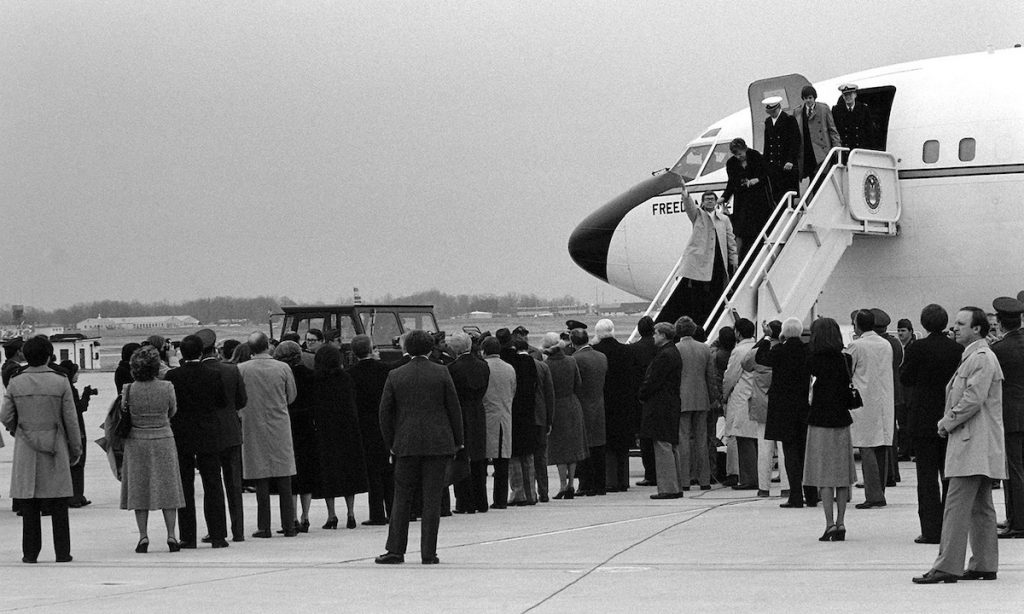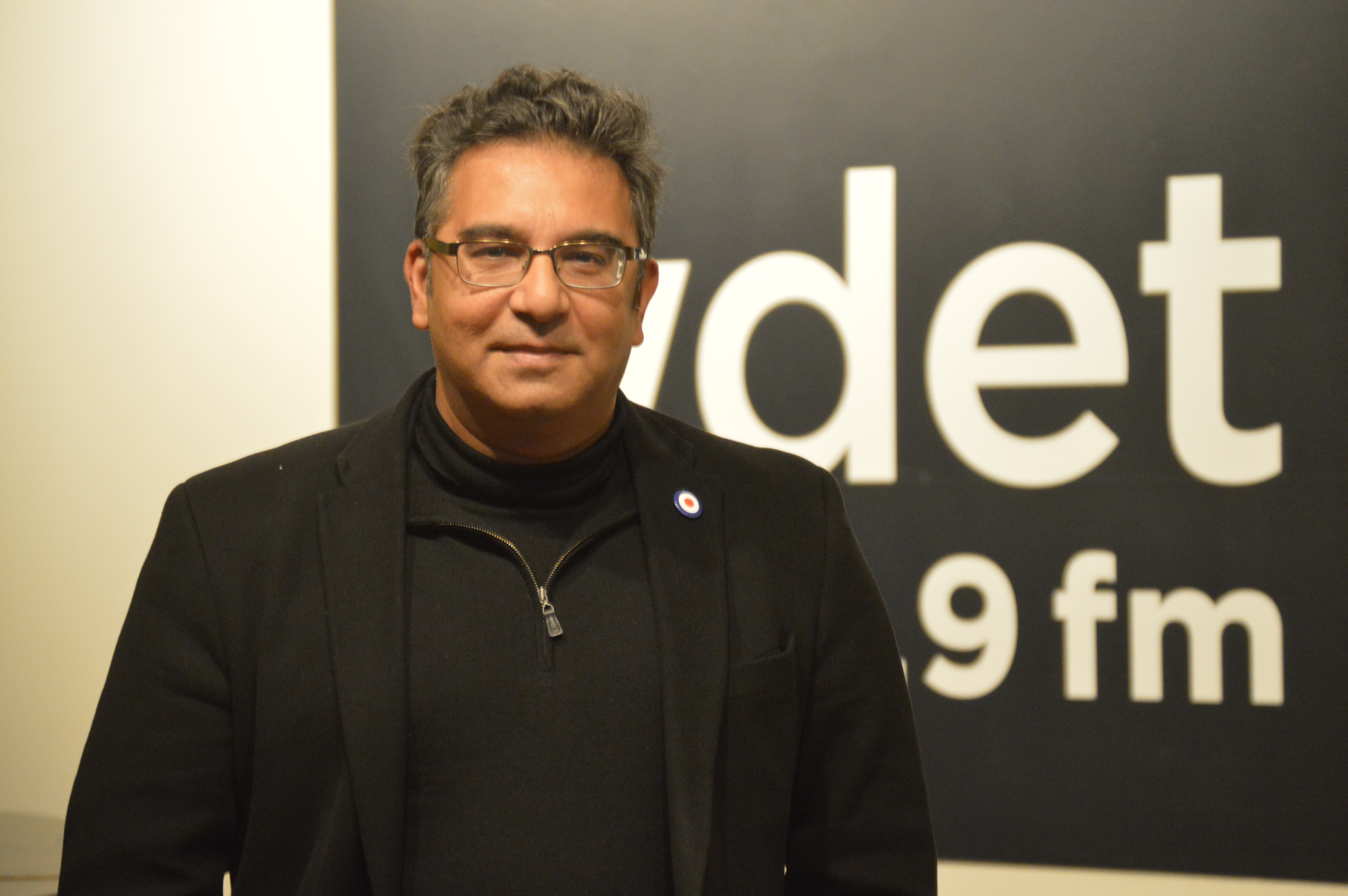Trump’s Iran Policy Another Chapter In Decades of Dysfunctional Relationship
Detroit Today speaks with Saeed Khan, a Near and Middle East expert, on the past, present and future of U.S.-Iranian relations.


Tensions between Iran and the United States have taken a turn, with retaliation on military bases in Iraq housing U.S. troops and a statement from President Trump about the conflict.
Trump says there were no U.S. casualties in the attacks, and announced a new round of sanctions on Iran. He also called on NATO to become more involved “in the Middle East process.”
The president struck a tone that suggested Iran is standing down after its retaliation on Tuesday night. But this is just another development in the long-running story of the U.S. relationship with Iran — tracing back to the birth of the Islamic Republic.
Saeed Khan, Wayne State University Near and Middle East expert, came on Detroit Today with Stephen Henderson to discuss what these events mean in this context.
Click on the player above to hear the full conversation on Iran and American foreign policy, and see a timeline of key events below.
Feb. 11, 1979: Iranian Revolution Topples Monarchy, Establishes Islamic Republic
To understand how we got here in the first place, Khan says it’s important to look back to the time just after the 1979 Iranian Revolution and the Islamic Republic of Iran’s early relationship with the U.S.
“As far as the United States was concerned, the Iranians didn’t have that much of a beef at this time,” says Khan.
He explains Iranian officials’ two demands were to return Mohammad Reza Pahlavi, the overthrown and U.S.-supported Shah of Iran, to stand trial for alleged crimes committed against the people of Iran and to release his bank accounts because they believed he had stole from the country for his own personal gain.
Nov. 4, 1979: Iranian Students Take U.S. Embassy Workers Hostage
The U.S. refused, resulting in protests outside the U.S. embassy in Tehran. Eventually, Iranian students were able to enter the embassy.
There, they discovered files that detailed the level of coordination between the CIA and the Shah’s secret police force. This led to the taking of 52 American hostages, who were held for 444 days. They were released the day President Ronald Reagan took office in 1981 (see photo above of hostages returning). We have not had diplomatic relations with Iran since.
1980’s: Iran-Iraq War, Iran-Contra Affair
In 1980, the United State supported Iraq and Saddam Hussein in an eight-year war against Iran, which led to 1.5 million deaths. And the U.S. breached its own diplomatic impasse with Iran with the Iran-Contra Affair in the late 1980s.
“So we see that it is a rather strange relationship,” says Khan.
More recently, he says, the tensions are fueled by a proxy war between Iran and Saudi Arabia for regional dominance.
“In the last 40 years, since the severance of diplomatic relations, there is no longer balance within the region and the United States has decided that it will simply listen to its allies in the region, which are Saudi Arabia, United Arab Emirates, and, by extension, Israel,” says Khan.
2015: Obama Enters Iran Nuclear Deal
“As a result of this [imbalance in the region], President [Barack] Obama decided that perhaps to restore some level of stability to then tamp down the various proxy wars that were occurring in places like Yemen and Syria, by extension in Lebanon,” says Khan. “It would be a good idea to negotiate with Iran, move it away from being seen as a pariah state, build some confidence and trust.”
2018: U.S. Withdraws from Nuclear Agreement
Of course, dismantling the deal became a mantra of Donald Trump both as a candidate and as president.
“In many ways, what we’re seeing is a domino effect leading to the intensification of Iran’s actions within the region, both through its proxies as well as directly,” says Khan.
2020: U.S. Kills Iranian General Qasem Soleimani
The United State’s relationship with slain Iranian general Qasem Soleimani was complicated.
“He was someone who had blood on his hands, certainly a lot of civilian blood on his hands when it came to places like Syria,” says Khan.
“At the same time, when we’re looking at this strategically and as a matter of policy, Qasam Soleimani was, ironically, America’s best ally in Iraq when it came to fighting ISIS,” he explains. “He was by far the most effective in going ahead and reducing the footprint of ISIS there, and, as has been admitted even by Pentagon officials, there was coordination between Soleimani and U.S. and coalition forces in order to have this common objective to reducing the potency of ISIS.
Having him taken out this way, in such a dramatic fashion, really was one of the most unwise decisions that was made, and really an overreach by the United States.”
The Future: Iran Closer to Russia, China?
Khan connects the killing of Soleimani with events going on further away from the country: Joint naval exercises with Russia and China.
“One of the objectives that Obama had with the nuclear deal, like it or not, was whether or not this would allow the United States to have, for the first time in 40 years, a rejuvenated sense of influence and leverage with Tehran at a time when China and Russia were simply clamoring for that opportunity. The removal of American influence as a result of pulling out of the Iranian nuclear deal has certainly then pushed Iran well into the patronage of both Beijing and Moscow. And it may simply be irreversible.”
